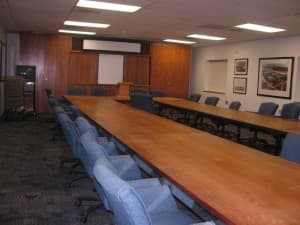Piedmont Triad Airport Grows Into Regional Aerospace and Logistics Hub
Piedmont Triad International Airport in unincorporated Guilford County continues to expand its role beyond passenger service into a major aerospace and manufacturing center, supporting cargo operations and multiple aviation companies. The airport's footprint and services matter to local residents because they influence jobs, infrastructure needs, and traveler convenience across the Triad region.

Piedmont Triad International Airport sits on thousands of acres west of Greensboro and serves the Triad region including Greensboro, High Point, and Winston Salem. What began as a regional passenger airport has developed into a broader transportation and industrial asset, hosting passenger flights, cargo operations, and a growing cluster of aerospace and manufacturing employers at and near the airport.
The airport offers a range of traveler services that support both local and visiting passengers. Lost and found services, free Wi Fi under the PTI Wi Fi network, an executive and business center, rentable conference rooms, and multiple customer service contact points are listed on the airport traveler services page. Standard amenities include parking, information desks, and accessibility services, and the facility maintains partnerships with local emergency services and hospitals to support traveler safety and emergency response.
Beyond traveler convenience, PTI plays a central economic role for Guilford County. The campus hosts maintenance and manufacturing operations, training programs, and multiple aviation related employers. Recent large scale aerospace site developments and corporate facility expansions announced at PTI have raised the airport's profile as a manufacturing and logistics hub. That profile matters locally because it strengthens the county's industrial base, creates pathways for technical training and employment, and anchors supply chain activity that supports other regional businesses.
The market implications for Guilford County are significant. Growth at the airport can increase demand for local transportation infrastructure, influence industrial and commercial real estate values, and shape municipal planning priorities. For residents the most direct impacts are opportunities for jobs in aerospace, manufacturing, logistics, and airport operations, along with potential additions to tax revenues that support schools and public services. Conversely, local policymakers will need to manage traffic, land use, and public safety to ensure that growth benefits the wider community.
Long term trends point to continued alignment between airport development and regional economic strategy. Training programs tied to maintenance and manufacturing operations can supply a local workforce, while cargo and logistics expansion can attract complementary industries. For travelers the practical advice remains simple. Check the official PTI website at flyfrompti.com for the latest information on traveler services, parking, terminal maps, and operational notices before travel.


